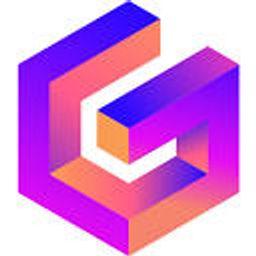
Google Gemini
Overview
Gemini is Google''s next-generation multimodal AI model family, capable of understanding, operating across, and combining different types of information including text, code, audio, image, and video. It''s engineered to be highly flexible, running efficiently on everything from data centers to mobile devices, and comes in three sizes: Ultra (for highly complex tasks), Pro (for scaling across a wide range of tasks), and Nano (for on-device efficiency).
Its unique strengths lie in its native multimodality, meaning it was pre-trained from the ground up on multiple data types rather than stitching together separate unimodal models. This allows for more sophisticated reasoning and understanding of nuanced information, enabling it to excel at tasks like explaining reasoning in complex subjects, understanding and generating code in various languages, and analyzing visual and auditory inputs seamlessly with text.
Gemini enhances productivity by powering more advanced AI features in Google products like Search, Ads, Chrome, and Gemini for Google Workspace. For developers, it offers powerful capabilities through Google AI Studio and Vertex AI for building next-generation AI applications, leveraging its state-of-the-art performance on various industry benchmarks and its ability to handle large context windows (e.g., up to 1 million tokens with Gemini 1.5 Pro).
Key Features
- Native multimodality: Seamlessly understands and combines text, code, images, audio, and video.
- Sophisticated reasoning capabilities across diverse data types.
- Multiple model sizes: Ultra (peak performance), Pro (versatile), Nano (on-device).
- State-of-the-art performance on numerous industry benchmarks (e.g., MMLU, HumanEval).
- Large context window: Gemini 1.5 Pro supports up to 1 million tokens in preview.
- Advanced coding: Generation, explanation, translation, and debugging across multiple languages.
- Fine-tuning options available on Vertex AI for specific tasks.
- Scalable deployment and management via Google Cloud infrastructure (Vertex AI).
- Integrated directly into various Google products for enhanced user experiences.
Supported Platforms
- API Access (via Google AI Studio and Vertex AI)
- Web Browser (for Google AI Studio, Gemini web app, integrated Google services)
- Android App (integrated into Google Assistant, Gboard, Messages, Pixel features)
- iOS App (integrated into Google app, Google Assistant)
- Pixel Devices (Gemini Nano for on-device features)
Integrations
- Google Workspace (Gmail, Docs, Sheets, Slides, Meet via Gemini for Workspace)
- Google Cloud Platform (Vertex AI, Google AI Studio)
- Google Search (Search Generative Experience)
- Android Operating System (AICore)
- Pixel Smartphones
- Third-party applications via API
Use Cases
- Developing advanced chatbots and conversational AI systems.
- Multimodal content analysis (e.g., generating descriptions for images, summarizing videos, answering questions about complex documents containing text and visuals).
- Sophisticated code generation, autocompletion, explanation, and debugging in various programming languages.
- Data analysis and insight extraction from diverse and unstructured data sources.
- Creative content generation for writing, brainstorming, and marketing copy.
- Automating tasks and enhancing productivity within Google Workspace applications.
- Powering research and discovery through analysis of large datasets.
Target Audience
- Software Developers & Engineers
- AI Researchers & Data Scientists
- Enterprises & Businesses (of all sizes)
- Content Creators & Marketers
- Students & Educators
- General Consumers (via integrated Google products like Gemini app and Workspace)
How Google Gemini Compares to Other AI Tools
Notes: Comparison based on publicly available information as of May 2024. AI model capabilities and pricing are rapidly evolving.
Pricing Tiers
- Access to Gemini Pro and Gemini Pro Vision models.
- Rate limited (e.g., 60 Queries Per Minute for Gemini Pro).
- Suitable for experimentation and low-volume use.
- Access to Gemini Pro and Gemini Pro Vision models.
- Pay per 1k characters for text input/output.
- Pay per image for vision input.
- Scalable access to Gemini Pro models.
- Integration with Google Cloud services.
- Suitable for production applications.
- Access to the latest Gemini 1.5 Pro model.
- Supports very large context windows (up to 1 million tokens).
- Advanced multimodal reasoning.
- Pricing varies by context window size.
- Access to Google''s most capable Gemini Ultra model.
- Designed for highly complex tasks requiring peak performance.
- Full multimodal capabilities.
- Access to Gemini Advanced (powered by Gemini Ultra) in Gmail, Docs, and other Google apps.
- Integration of Gemini into Google consumer products.
- Includes other Google One benefits (e.g., 2TB storage).
Awards & Recognition
- Achieved state-of-the-art (SOTA) results on numerous industry benchmarks at launch, including MMLU (Massive Multitask Language Understanding) for Gemini Ultra.
- Reported superior performance on various multimodal benchmarks compared to previous models.
- Recognized as Google''s most capable and general AI model to date.
Popularity Rank
Information not publicly available in terms of a direct comparative rank (e.g., on Product Hunt). However, it is one of the most prominent and widely discussed AI model families globally.
Roadmap & Upcoming Features
December 2023 (Initial announcement of Gemini 1.0: Ultra, Pro, Nano). Gemini 1.5 Pro announced February 2024.
May 2024 (e.g., Gemini 1.5 Pro general availability in public preview in Vertex AI, ongoing feature enhancements and integrations).
Upcoming Features:
- Wider availability and fine-tuning options for Gemini Ultra.
- Continued enhancements to Gemini 1.5 Pro''s large context window and multimodal capabilities.
- Deeper integrations across more Google products and services.
- Further improvements in reasoning, accuracy, and efficiency across all model sizes.
- Expansion of on-device capabilities with Gemini Nano.
- Potential for specialized model versions tailored to specific industries or tasks.
User Reviews
Pros
Strong native multimodality, state-of-the-art benchmark performance, deep integration potential within Google''s ecosystem, large context window (1.5 Pro).
Cons
Phased rollout of advanced features/models, complexity in navigating different versions and access points, ongoing LLM challenges like potential for inaccuracies.
Pros
Powerful API access, scalability via Google Cloud, good documentation for developers, innovative features like long context.
Cons
Can be costly for extensive use of premium models, API behavior can evolve during preview phases, some advanced configurations require deeper cloud expertise.
Get Involved
We value community participation and welcome your involvement with NextAIVault:










